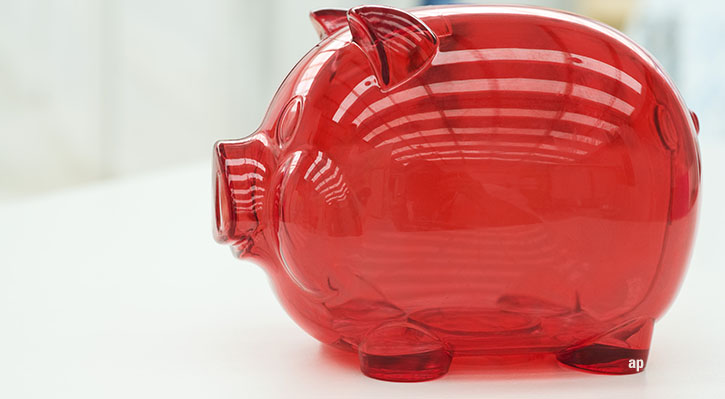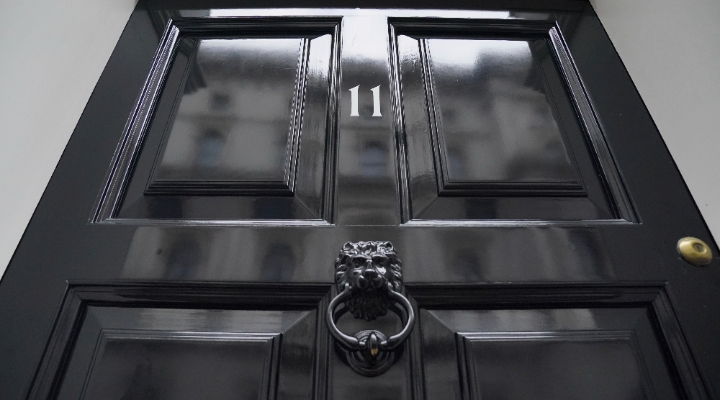
It's that time of the year again.
Savers across the country are rifling through their online accounts to work out what left they have to maximise their ISA allowances before the end of the tax year on 5 April.
This is understandably an intense experience. With a deadline approaching, what do financial advisers tell clients looking to get it right under pressure?
The first thing, says Jarrod Ellis, director at financial advice firm Delta Financial Management, is "do not panic."
"Do not panic because people rush around and think 'I must invest in this and that,'" he says.
"If you are short on time, what I would do is open an instant access cash ISA. Either with [your] own bank or another bank because that means you have used your allowance for this year.
"After that if you decide you want to put into a fixed-rate deposit or want to put it into an equity ISA, you can transfer it in the new tax year. But you have, in effect, used your allowance up without having to make any life-changing decisions."
Ellis also sees a window of opportunity for parents holding junior ISAs for their kids, or even savvy kids themselves. Anyone who is 16 to 18 can use up their junior or cash ISA allowance before 5 April – and before the cash ISA minimum age increases from 16 to 18 this year.
"What was happening was: someone under 18 could have a junior stocks and shares ISA and put £9,000 in. But they could not have an adult stocks and shares ISA until they were 18. But they had this weird thing where cash ISAs began at 16," he explains.
"So someone who is 17 could put £9000 into a junior stocks and shares ISA and then put £20,000 into a cash ISA as well. In effect 16-17 years olds had a £29,000 ISA allowance, but they have got rid of this to make the system simpler."
Why The ISA is Tax-Advantageous
Taylor Beavis, director and financial adviser at Universe Financial Advice, says many of his clients in London are into share trading because of adverts plastered across the tube, which leads them to miss out on the benefits of ISAs.
"A client of mine had built up a substantial portfolio but had no idea what an ISA was; he built it all outside an ISA and what that means is any income that's generated – any dividends paid – are subject to dividend, income and capital gains tax.
"Had he built that in the stocks and shares ISA over the years, where he could hold the exact same investments, he would then never have had to pay any money on any growth, income or any dividends."
As a result, Beavis would tell a theoretical client with money outside a stocks & shares ISA to sell some of their pot to use up their capital gains tax allowance this tax year. That would mean the gain on their investments would remain within the allowance, which would spare them from paying capital gains tax. The proceeds could then be moved into an ISA.
Nevertheless, Beavis still highlights the importance of cash ISAs, as rates are good.
"Now that the cash rates are pretty good, some people are earning between 4% and 5% on their money. Let's say you're a higher-rate taxpayer in London and you've got £50,000 in the bank, and its earning you 4.5% in interest.
"That is going to generate around £2,250 of interest every year because you are a higher-rate taxpayer, and only £500 of that can be tax free. So you have to declare the rest on your tax return. But if you just move £20,000 of that £50,000 into a cash ISA this year and use up your cash ISA limit, you will save hundreds of pounds of tax immediately."
Are ISAs Complicated?
In Beavis's view, the UK's ISA framework is too complicated, with four different ISAs with four sets of rules and limits. The general public does not understand what it can put in, where, and when. He is among those who feel sceptical about the arrival of the British ISA, which he says will add another layer of complication.
But to matters practical, there is no time like the present to get things sorted.
For John Lyons, founding director of Clear Vision Wealth Management, those rushing to put money into ISAs probably should have started sooner.
"But I would say better late than never," he tells Morningstar, "especially if you're looking at cash ISAs.
"The way interest rates have gone up, it is now possibly more important than ever to shelter as much of your interest from tax money as you can – and with stocks and shares ISAs specifically because the capital gains tax allowance is reduced from over £12,000 to £6000 this year and £3000 as of 6 of April."
As a rule, Lyons believes it is imperative that people do not leave using up their ISA allowance to the last minute.
"I used to work for HSBC, and it never ceased to amaze me how many people came into the bank on the last day of the tax year.
"But there was no rush on the first day of the tax year, which is really the best time to do it."





























